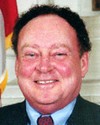Mr. Speaker, in accordance with Standing Order 48, I raise a question of privilege regarding the premature disclosure of a committee report. I base this question on new information obtained through access to information.
On October 1, 1997 I raised a question of privilege on a related matter, namely that a breach of privilege occurred when the industry committee's in camera draft report was released to the public. I indicated then that according to access to information documents the industry minister and industry department bureaucrats were in possession on April 18, 1997 of draft copies of the fifth report of the Standing Committee on Industry.
The final report of the committee entitled “Review of section 14 of the Patent Act amendment, 1992” was reported to the House of Commons on April 23, 1997, five days later. On October 9, 1997 the Speaker ruled that while the matter raised was important, it was not appropriate for the Speaker to intervene at that time and I stress at that time.
Access to information files show that House of Commons legal counsel argued on August 25, 1997 that the release of the draft committee report “could give rise to a question of parliamentary privilege”. At the time legal counsel advised that the draft report not be released. The letter and subsequent release of the draft report would indicate there are no formal rules governing the handling of committee documents.
I would contend that if the House of Commons precedent is the guide, the new information obtained through access to information provides the Speaker with the authority to intervene at this time since on August 25, 1997 it now appears House of Commons legal counsel was made aware the draft report would be released.
Responsibility for House of Commons legal counsel lies with the Speaker. This new information indicates the matter should therefore be dealt with by the House of Commons as a whole and not left in the hands of committees themselves.
By the same token a new element to the body of precedent in these matters has been introduced since persons under your responsibility were consulted and their advice on a matter of parliamentary privilege was not followed.
In the October 9, 1997 ruling, the Speaker referenced Speaker Fraser's December 7, 1991 decision indicating the Chair does not intervene in the proceedings of a committee unless a problem has been reported by the committee to the House, or in extremely unusual circumstances. The new information indicates there are indeed unusual circumstances.
For clarity I again refer to Beauchesne citation 877 on page 241 which states that no act done at any committee should be divulged before it has been presented to the House. Beauchesne citation 877 also states that the publication of proceedings of committees conducted with closed doors or of reports of committees before they are available to members will constitute a breach of privilege. Also Beauchesne citation 57, page 18 states “the House has in the past regarded the publication of the proceedings or reports of committees sitting in camera to be a breach of privilege”.
Therefore I move that this House refer the matter regarding rules for the handling of committee documents to the Standing Committee on Procedure and House Affairs.











